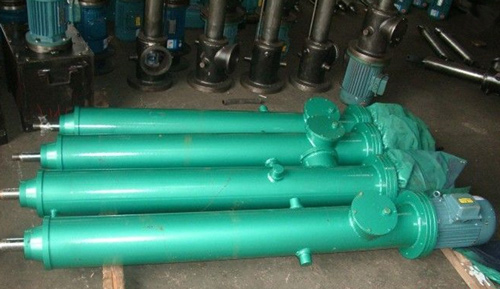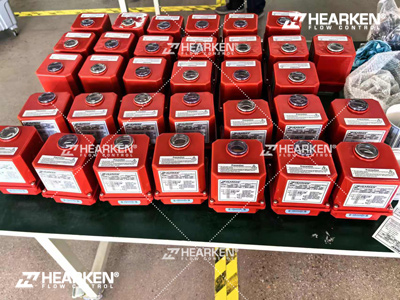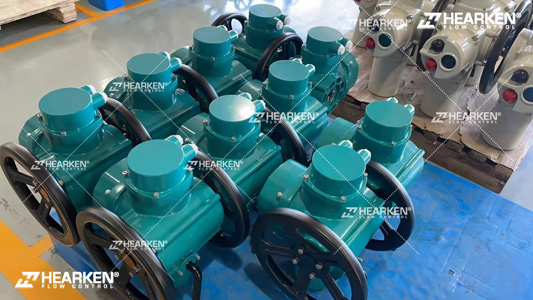Which is Better to Use, Hydraulic or Electric Actuators?
Choosing the right actuator is crucial for industrial automation. Both hydraulic and electric actuators have their own advantages, but understanding their differences can help in selecting the optimal solution for your application.
What is a Hydraulic Actuator?
Hydraulic actuators use pressurized fluid to create movement. They are typically used in applications where high force and power are needed, making them ideal for heavy-duty tasks. However, they require a hydraulic power unit (HPU), are prone to leakage, and can be less efficient compared to electric actuators.

What is an Electric Actuator?
Electric actuators, use electrical energy to drive a motor, offering precise and efficient motion control. They are typically more compact, require less maintenance, and are easier to integrate into automation systems. Electric actuators also have the benefit of being more environmentally friendly, especially when combined with renewable energy sources.

Differences Between Hydraulic and Electric Actuators
1. Efficiency
Electric actuators are more energy-efficient, as they directly convert electrical energy into motion.
Hydraulic actuators, in contrast, have energy losses due to the hydraulic fluid and system requirements.
2. Maintenance
Electric actuators are low-maintenance and don’t require fluid changes or special components.
Hydraulic systems, however, need regular maintenance to check for leaks, replace fluid, and ensure proper pressure.
3. Control Precision
Electric actuators offer superior control precision with position feedback and closed-loop control.
Hydraulic actuators may struggle with precise control due to fluctuations in fluid pressure.
How to Choose Between Electric Actuators and Hydraulic Actuators?
In most cases, electric actuators are the better choice for modern automation needs. Here's why:
- Simpler Design: Unlike hydraulic actuators, electric actuators don’t require a hydraulic pump, valves, or fluid, making them simpler and more reliable with fewer components prone to failure.
- Lower Maintenance: Electric actuators are easier to maintain as they don’t involve hydraulic fluids or filters, reducing the risk of leaks or contamination.
- Better Precision and Control: Electric actuators offer high-precision control with advanced positioning, force, and speed feedback, which hydraulic actuators can’t match without expensive additional components.
In conclusion, electric actuators are the optimal choice for most applications due to their efficiency, ease of maintenance, and precise control capabilities.

Frequently Asked Questions
Q: Will the torque increase after adding a turbine to the actuator? Can it drive a valve with a larger torque?
A: No, the torque of the actuator remains unchanged. The turbine is used to reduce speed. Adding a turbine will reduce the torque of the valve to the same level as the actuator.
Q: Q-type electric actuator housing type standard
A: ADC12
Q: Does the HMT electric actuator have a self-locking function?
A: Yes
Q: What is the operating temperature range of the HEN electric actuator?
A: 15℃~+45℃ (plastic material); -15℃~+60℃ (die-cast aluminum material).
Q: Can the motor of the electric actuator be insulated?
A: Yes